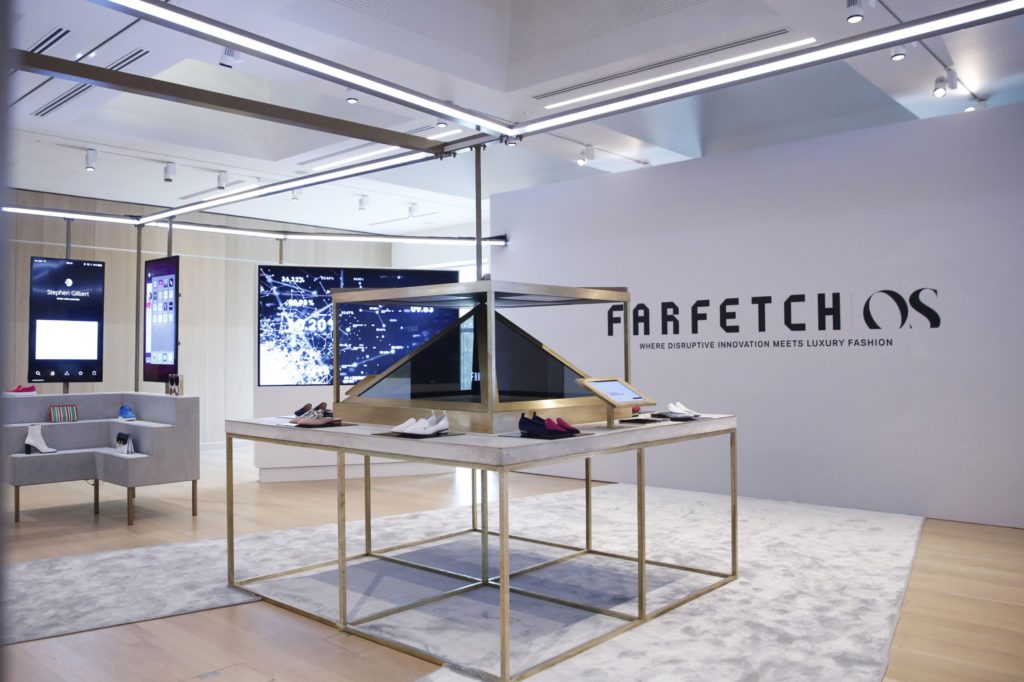(Bloomberg) — Richemont is reversing course on a solo effort to build a luxury e-commerce platform and is preparing to cede control of Yoox Net-A-Porter via a deal with web-shopping specialist Farfetch Ltd.
The move follows reports that activist investor Dan Loeb bought a stake in the Cartier owner, which has been struggling to make its online business profitable since taking full control of it three years ago. Richemont shares rose as much as 9.8% to a record Friday after the company also reported first-half earnings that beat estimates.
Farfetch, a London-based luxury e-commerce company, is in advanced talks to buy a minority stake in Yoox Net-a-Porter, Richemont said Friday. The goal is for the unit, known as YNAP, to be a neutral platform with no controlling shareholder. Other luxury-goods makers have shown strong interest in joining as well, the owner of Vacheron Constantin said.
Farfetch confirmed the talks and said there’s no guarantee an agreement will be reached.
Richemont originally wanted to collaborate with rivals in e-commerce, but that didn’t pan out. In 2015, Rupert invited LVMH and Kering SA to invest in YNAP, arguing that no luxury-goods company could go it alone, but they never did. In 2018, the Swiss company raised its stake in the online business to 100%.
While Chairman Johann Rupert is defusing a potential standoff with Loeb over YNAP, Richemont’s founder said the move isn’t a response to activist pressure.
“We’ve been signaling this for a year now,” Rupert said. “It’s not activist pressure or anything at all.”
Good Luck
On a webcast with analysts, Rupert indicated Loeb does own shares, but declined to detail the size of any stake.
“I think he clearly took us more seriously than you guys did when we said that we were going to find a solution for online,” Rupert said. “Clearly he’s a sophisticated investor, and he did what anybody else could do, which is to buy shares.”
Later Rupert said if Loeb’s hedge-fund firm Third Point LLC bought shares, he probably made a gain and “good luck to him.”
Richemont said it aims to expand the e-commerce business, which contributes 18% of its total revenue. Some brands have been reluctant to join YNAP given that the platform is controlled by a competitor. Chief Financial Officer Burkhart Grund said the company is in advanced talks with possible investors besides Farfetch, and Rupert said the company expects talks about selling stakes to luxury-good rivals will take place over the coming months.
Grund told reporters every shareholder would have less than 50% of YNAP’s voting rights. YNAP also plans to use Farfetch’s technology, and Richemont would put its brands on the rival’s platform.
No Sale
Separately, Rupert said Richemont has made a “clear statement” that it’s not for sale and not interested in mergers. Analysts have speculated the Swiss company would be a good partner for Gucci owner Kering.
Richemont already has bought a stake in Farfetch’s Chinese business, and a joint venture between the companies and e-commerce giant Alibaba Group Holding Ltd. began operating in August. Last year when that deal was announced, Sanford C. Bernstein analyst Luca Solca said the alliance could be a precursor to Richemont spinning off YNAP and merging it with Farfetch or to selling it to Alibaba.
Richemont also said operating profit rose to 1.95 billion euros ($2.2 billion) in the six months through September. Analysts expected 1.49 billion euros.
What Bloomberg Intelligence Says:
Richemont’s jewelry division — led by Cartier — is in the top tier of luxury makers, demonstrated by 1H’s 41% increase in constant-currency sales up vs. 2019 and management’s bullish outlook for jewelry on new designs and pent-up demand. Richemont’s overall sales rose 24%, with an operating margin of 21.9%, 620 bps ahead of 2019. A welcome move is talks with Farfetch and others to seek a fix to the company’s unprofitable Yoox Net-a-Porter e-commerce unit.
— Deborah Aitken, BI luxury-goods analyst
“The post-Covid world is yet to emerge. For the second half of the year, volatility is likely to persist, including in terms of inflation and geopolitical tensions,” Rupert said in the statement. He also warned that the company will face a more difficult comparison base.
(Updates with Farfetch comment in fourth paragraph)
More stories like this are available on bloomberg.com
©2021 Bloomberg L.P.











